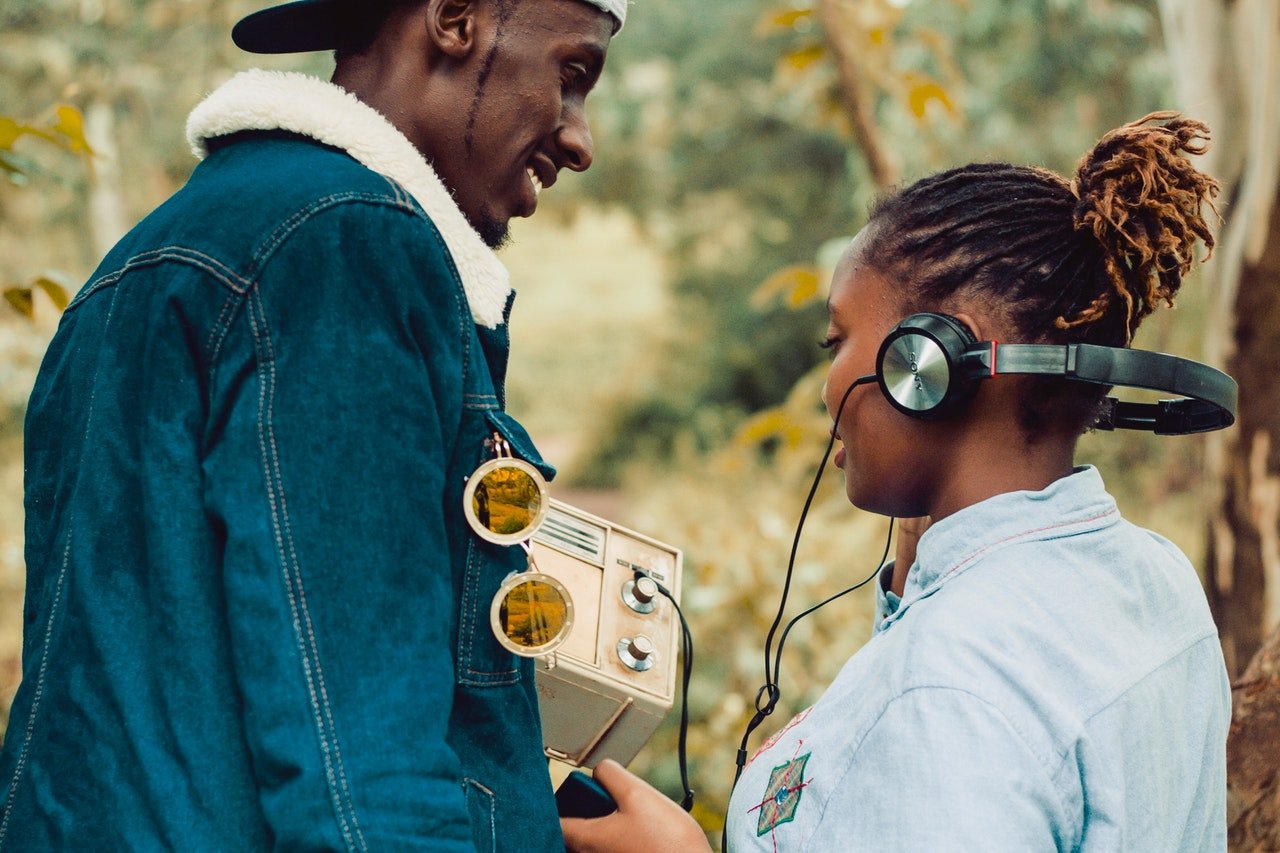‘Local conversation and local culture isn’t disappearing necessarily just because we have a world that’s more connected. In fact I think it allows some subcultures to blossom a bit more and for local conversations to have even more power and I think that radio can certainly play a part in that’ – Jared Leto (Thirty Seconds to Mars)
Radio has changed. It’s more than what it once was – encompassing terrestrial, satellite, streaming services, digital/online outlets and providing more unique content than ever before.
The role it fulfills hasn’t changed however; beyond being a source of information and entertainment, it remains a community builder – a curated, multi-dimensional global medium that brings like-minded people together, defies political and geographical boundaries, and broadcasts both entertaining and mission critical information.
In North America we’re lucky. We don’t have to rely purely on terrestrial radio for information. We have broadband connectivity and the financial resources (individually and collectively) to access the Internet, and all the information we need at our fingertips.
In many parts of the world information is suppressed, illiteracy is more common, and online access is either limited by financial constraints, blocked, or simply not functioning. In those places radio is key.
Consider, too, the role that the BBC and Radio Free Europe played during both the hot and cold wars of the 20th century, and the fact that, for the lion’s share of the rural poor on Earth, radio is the only source of information.
Expect the unexpected
A curated, musical experience provides listeners with the new, the unfamiliar, and the unexpected. You can find Icelandic Glacier Funk or Fijian Beach Metal online, but chances are you’re going to hear the most influential artists in those genres on a station whose listeners are really, really into them.
Sure, commercial radio does play many songs very often, but you don’t know what’s coming up next and, given the range of options available in any market – close to home or literally half a world away – you have other options. Also, the content broadcast is unique to the voice of the outlet and the DJ/announcer on air. It reflects, in real time, what’s happening in the moment, presents a local perspective, and draws people out of their personal informational/cultural silos and introduces them to a wider world.
Someone, somewhere, loves what you do
The range of programming on offer is incredibly diverse, whether provided by major outlets, local, or non-commercial stations. Big stations may have more listeners, but those tuning into indie, college, and community radio are often more intimately and heavily engaged. That creates opportunities for musicians and creators of all descriptions, globally; be they niche artists or well-recognized talents. Commercial stations may default to known quantities over unknown artists, but non-commercial and local outlets have no qualms about supporting emerging talents.
Radio builds community
That community is thriving in both remote corners and urban metropolises. There are multiple reasons for this; from the ease of just tuning in during your commute, to defaulting to hearing something created specifically for that moment in time, through the sense of connection with a live announcer/DJ who provides insight and stories about what and who you’re listening to.
In many parts of the world, radio is the only game in town
The reach of radio remains expansive in the developed and developing world. It transcends national boundaries, defies censorship, and helps to increase literacy. It is a social force and a unifier. For many, it is a necessity.
Again, we’re incredibly lucky in North America to have the broadband penetration we do. Some estimates peg the percentage of the global population with Internet access in the mid 50-percent range – with roughly 80-percent of those being in the developed world. Put another way, the Internet is only an option for roughly 20-percent of the world’s population. Conversely, as of June 2018, UNESCO estimated that approximately 75-percent of households in developing countries have access to a radio. In the US, in 2017/2018, some estimates says 93-percent of Americans still listen to AM/FM radio, a greater percentage than those for whom TV or the Internet is the go to. In Canada, in 2018, radio is estimated to reach roughly 25.7 million people (out of a total estimated at 37.06 million).
Why?
There’s a reason those little crank charged AM/FM radios are recommended for a survival kit – whether the crisis is a power outage or the zombie apocalypse – they’re portable, powerful and consistently reliable.
And radio is free, available anywhere and provides a massive variety of curated and readily accessible content. It’s exceedingly rare for a new technology to completely and irrevocably replace another. We may listen to radio differently. We may have options we didn’t have before. But we’re still tuning in.
